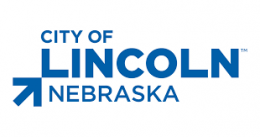Best practices from a procurement pro when considering cooperative pacts
Bob Walla, purchasing agent for the City of Lincoln/Lancaster County (Neb.) Purchasing Department, sees value in cooperative agreements that his agency uses. “Cooperative contracts can be an efficient and effective way for smaller public purchasing departments to procure a large variety of products and services,” Walla tells GPN. 
Walla, who has worked at the city/county purchasing department for 11 years, says his agency follows detailed steps in the buying process. “When we are considering the use of a coop contract, we look at some of the big names first. If we do not find a contract that is applicable from those sources, we will ask the vendor if they have a contract with another entity and request such contract for our review and consideration.”
Walla says that if that contract’s terms and pricing are acceptable, his agency will piggyback the contract if it has an assignability clause and is in the best interest of his city/county.
All is not lost, Walla adds, if a suitable pact can’t be found. He says his agency can still obtain valuable data as it investigates cooperative agreements that offer potential for a specific buy. “If we conclude that a coop contract is not in our best interest, we utilize the contract information we have gathered as a benchmark for the estimated price we can expect from our own purchase process.”
Walla says his procurement department considers the impact of using a coop contract on the local vendor community. “If local vendors are not included in large solicitations, they tend to be vocal to local elected officials because they want a piece of the taxpayer money that’s available.”
Walla cites one example: “Local vendors have furniture, office supplies, etc., which they want to sell to us but we buy off of a national contract due to price and other factors. The vendors then claim they never had the opportunity to bid those large contracts due to the national distribution requirements.” Walla says those same vendors also claim that they are not getting a fair chance to win government business.
One solution, Walla says, would be for vendors to link up with local dealers and distributors in cooperative pacts. “If large companies that get national contracts would find local partners, it would greatly enhance the coop opportunities that our agency could participate in.”
Walla says motor graders are a product category where local vendors can participate via coops. The graders, Walla says, “are on multiple contracts with our local dealers so we have to do a price and cost comparison on each product and each contract.” His city/county agency, Walla adds, has also purchased graders off of a national contract through an out-of-state vendor who then contracted with the local dealer to deliver the items.
Based on his agency’s current buying trends, Walla believes his team will issue more contracts in 2018 via coops.
Michael Keating is senior editor for American City & County and the GPN web site. Contact: [email protected]
_____________
To get connected and stay up-to-date with similar content from American City & County:
Like us on Facebook
Follow us on Twitter
Watch us on Youtube




















